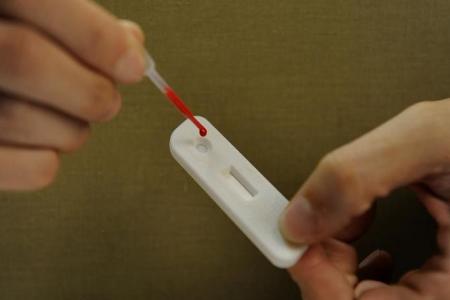HIV disclosure law to be amended
People with the human immunodeficiency virus (HIV) will no longer be legally required to disclose the risk of contracting the virus to their sexual partners as long as they have maintained undetectable viral loads for at least six months, under a Bill passed in Parliament on March 7.
They must also have test results showing that they have an undetectable viral load dated nine months or less before the date they have sex, and they must have adhered to their medical treatment during this time.
“Persons living with HIV who have met these criteria would have effectively zero risk of transmitting HIV to their sexual partner,” said Senior Parliamentary Secretary for Health Rahayu Mahzam in Parliament.
Currently, those who have tested positive for HIV must not engage in sexual activity with another person unless they first inform the other person of the risk of contracting HIV, and the other person agrees to accept the risk. Those who fail to do so can be fined up to $50,000, jailed for up to 10 years or both.
Ms Rahayu said the changes align with medical advancements, as well as Singapore’s public health objective to curb transmission by shifting greater responsibility to individuals.
“The objectives of the amendments are to encourage individuals who are at higher risk of getting HIV to be tested regularly for HIV, and if possible to get treated early, so that they can achieve undetectable viral load as early as possible,” she said. She urged those living with HIV to adhere to treatment and monitor their viral load closely with their doctors to reduce the risk of transmission.
The amendments to the Infectious Diseases Act mean that laws on disclosure will no longer apply to such individuals if they have maintained an undetectable viral load for a prescribed period before having sex.
Ms Rahayu noted that Singapore is not the first jurisdiction to amend HIV disclosure laws. Sweden, Taiwan and the United States have also removed the disclosure requirement for persons living with HIV who have no risk of transmitting the virus.
“I would like to emphasise that in proposing the amendments, we are not relaxing the public health safeguards against HIV transmission, but encouraging infected persons to come forward to be tested and treated, thereby better protecting their sexual partners,” she said.
Ms Rahayu added that irresponsible behaviour that can lead to the transmission of HIV remains an offence and appropriate enforcement action will be taken.
It is still a criminal offence for any person who knows that he or she has HIV to donate blood at any blood bank in Singapore. Those who do so can be fined up to $50,000, jailed for up to 10 years or both.
Get The New Paper on your phone with the free TNP app. Download from the Apple App Store or Google Play Store now


